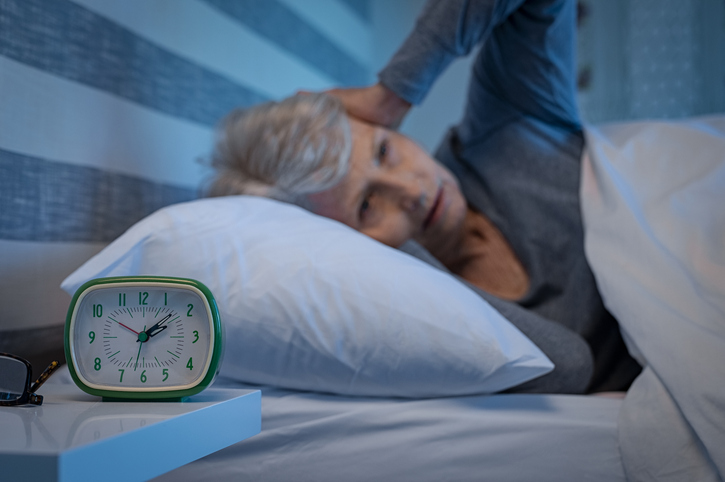
Overcome senior insomnia with these tips.
Tossing and turning. Staring at the clock. Counting sheep. If this represents a regular evening for your aging loved one, know that he or she is far from alone. While seniors have the need for between seven and nine hours of sleep every night, around 50 percent of all adults over age 65 report difficulties with falling and/or remaining asleep. Yet it’s important to understand that although senior sleep problems may be typical, they are not a normal part of aging – and there are actions that can be taken to prevent senior sleep issues.
First, it is necessary to rule out a clinical sleep disorder, which could include symptoms noted on a regular basis such as:
- Difficulty with falling asleep even when tired
- Difficulty with falling back to sleep once awakened
- Drowsiness or irritation during waking hours
- Concentration or focus issues, or falling asleep when sitting still (such as when watching TV or riding in a car)
- Unmanageable emotions
- Dependence on alcohol or sleeping pills to obtain needed sleep
The doctor must be contacted if a sleep disorder is suspected. For many older adults, however, there’s an underlying trigger behind the insomnia. Some of the common causes of senior sleep difficulties are noted below, with suggestions to help:
- An environment that’s detrimental to rest and sleep. Confirm that the bedroom is dark, quiet, and cool. Remove the television set and any electronics from the bedroom, and follow a regular sleep routine that includes relaxing music, a warm bath, reading, or any other calming activities, in addition to a set time to go to bed every evening.
- Medication side effects. Assess any drugs your loved one takes – both prescription and OTC – to find out if sleep disruptions may arise, and then talk with the senior’s doctor about whether any medication changes are required.
- A sedentary lifestyle. Remaining as active as possible during the course of the day can go a long way towards a better night’s sleep. Encourage your senior loved one to register for an exercise class, take a walk each afternoon, or join a local pool and make an effort to swim each day (all with the doctor’s approval).
- Chronic disease complications. Conditions such as Alzheimer’s, diabetes, osteoporosis, and others can contribute to senior sleep disruptions. Check in with the senior’s doctor for recommendations.
- Post-menopause. It’s common knowledge that the hot flashes often occurring during menopause can interfere with sleep, but hormone-related sleep problems can continue after menopause as well. The lifestyle modifications outlined above could help.
Hearts at Home In-Home Care, Kansas City home care experts, can assist with senior sleep issues in a number of ways as well. Reach out to us at 913-440-4209 to arrange for a free in-home consultation to learn more! And visit our Service Area page to find out if our personalized home care services for seniors are available in your area.
